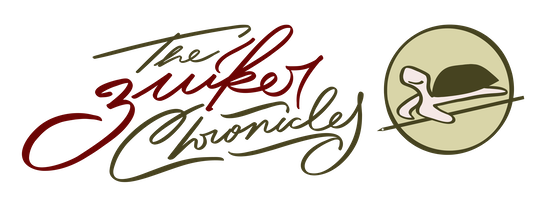Take my ball, go home
by Anton Zuiker on November 1, 2025

Toward the end of my talk session this week, right about the time it came clear to me that growing up the oldest of five sons had primed me to feel a constant call to be mature and responsible, I heard my therapist use the expression “I’m going to take my ball and go home” to ask a question about how I respond to my brothers in various situations.
I chuckled at that.
I happen to talk a lot about soccer in my therapy sessions (and in my professional coaching chats). Soccer has been a constant part of my life for nearly 50 years, and in the last few I’ve found parallels in what I’m learning about myself through mindfulness and how mindfulness can help me play on the pitch better.
Each Sunday, when I show up early for the pick-up game, I come prepared: I bring a set of pop-up nets, orange cones, a hand pump, and a soccer ball. One morning I even had clean socks to lend a buddy when he needed a pair. I tell myself I need to bring all of this gear because I’d hate to show up and there not to be any way for us to play a game. Therapy is helping me see that, even deeper, I feel responsible even when I may not need to be the responsible one.
“Take my ball and go home” was spot on and timely.
I buy a few soccer balls each year, trying to get better models when they are on sale, and back in January I purchased a yellow Select ball designed for use on artificial turf, which is what we play on in the Sunday game in Chapel Hill and Durham (the ball is made with a slicker, thicker material to withstand the friction). I took it to the game for a few weeks, but I noticed that the ball had a tendency when kicked to pop up toward head level, and I don’t like a ball coming at my head. So, I stuck it in the back of the garage for the summer. On a rainy day last month, though, I brought the ball along and the other guys seemed to prefer it to the other balls.
The next week, the guys again selected this Select ball and got the game going. An hour into the play, I’d already used my body twice to block hard shots. Then, a third block, and my right thigh was burning from the impact. I’d fallen down. I smacked the ground.
“I hate that fucking ball!” I yelled.
“Why?” someone asked. “It’s a good one.”
“It’s okay, It’s my ball, and it’s dangerous,” I said.
“I’ve got a machete in my truck if you want to stab it,” another guy offered.
“That’s okay,” I answered. “I’ve learned my lesson about frustration and knives.”
Exhale
Long ago in Vanuatu, Noel had come in from fishing and given us a beautiful fresh red snapper. I only had a dull knife and had a tough time preparing it to cook. In frustration, I stabbed the knife into the cutting board but my hand was wet with fish flesh and slipped down the knife, which sliced open my palm. I bandaged my hand, but not well enough, and a week later it was swollen twice its size, a clear case of cellulitis that required me to get antibiotics sent from the Peace Corps nurse in Port Vila and then for Elizabeth, the nurse in the Liro Clinic, to administer the shot.
Still, it’s taken me 25 years to learn better skills to manage my frustrations—to slow down, to learn to breathe, to be aware, to choose how to react.
Back on the soccer pitch, I swapped balls (I’d actually brought two that day, and others had brought balls) and play continued. Later, at home, I calmly deflated this dangerous ball and put it on a shelf in the garage. I have another new ball ready to go. This one is a Brine Phantom X, a model we’ve used before. The guys liked it, I didn’t get hurt, and the football was fun.
But tomorrow I’m going to try something new. I’m going to show up with just my boots, my water bottle, a white shirt and a black shirt. I’ll let others bring the goals and the ball. I’ll take a deep breath, and play.
Previous post: Huck and Jim
Go to HOME

